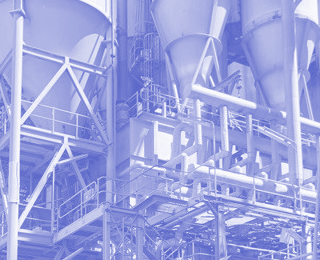Circular plans for chemical sector
 The chemical industry, a vital driver of global innovation and development, is now facing a transformative challenge.
The chemical industry, a vital driver of global innovation and development, is now facing a transformative challenge.
The industry's reliance on fossil fuels has long been criticised for its environmental impact, contributing significantly to climate change and pollution.
However, a new commentary published in Cell Press’ OneEarth proposes catalysis as a key to shift the chemical industry towards sustainability and a circular economy.
The commentary, titled ‘Catalysis at the Intersection of Sustainable Chemistry and a Circular Economy’, argues that the chemical industry's future lies in leveraging sustainable waste resources through catalytic processes.
This approach aims to move the industry from a linear model, which is heavily dependent on fossil fuels, to a circular one, which recycles and reuses waste materials.
Professor Karen Wilson, Director of Griffith’s Centre for Catalysis and Clean Energy and one of the lead authors, highlights the economic significance of the chemical industry.
“If we look at recent statistics, the chemical industry contributes a staggering US$5.7 trillion to the global economy and sustains 150 million jobs worldwide, excluding refined fossil fuels,” she says.
Despite its economic importance, the industry's environmental footprint is substantial. In 2022 alone, the production of primary chemicals resulted in 935 million metric tons of CO2 emissions, making it the third-largest emitter of direct CO2 emissions globally and the largest industrial energy consumer.
Professor Adam Lee, co-lead author, says catalysis could help address these environmental challenges.
“Catalytic processes could minimise reliance on finite fossil fuels and curb CO2 emissions significantly by harnessing agricultural, municipal, and plastic waste as feedstocks. This feedstock transition not only mitigates environmental damage but also addresses vulnerabilities in the industry's supply chain, which are susceptible to geopolitical and natural disruptions,” he said.
The authors emphasise that the successful implementation of this vision requires significant advancements in catalyst formulation and process integration.
“Prioritising Earth-abundant elements over precious metals will unlock sustainable catalytic systems for the efficient conversion of organic waste into benign and recyclable products,” Prof Wilson says.
The commentary explores three main areas where catalysis can drive sustainable and circular chemical processes: enabling the utilisation of waste biomass, creating circular polymers, and remediating chemical pollution.
These catalytic innovations have the potential to revolutionise the chemical industry by transforming waste into valuable resources, thereby promoting a circular economy.
“Catalysis has historically played a key role in transforming fossil resources into essential fuels and products, and now offers a beacon of hope for revolutionising the chemical industry and promoting a circular economy,” Prof Wilson said.








 Print
Print